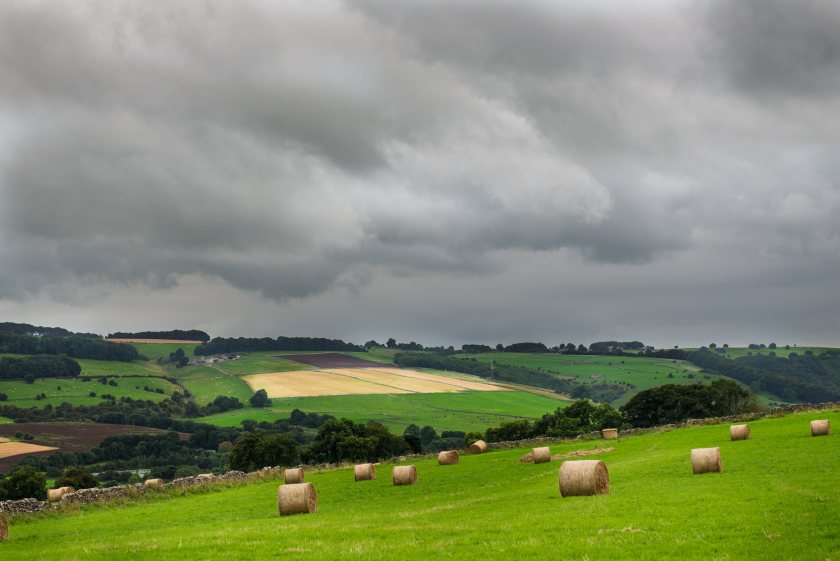
Anxiety has become an almost universal experience among Britain’s farming community, following the country’s third worst harvest on record last year and an exceptionally dry spring this year.
New research commissioned by the Energy & Climate Intelligence Unit (ECIU) and carried out by Grounded Research highlights the toll that extreme weather is taking on farmers’ mental health.
According to the study, 98% of British farmers have experienced extreme weather over the past five years. The most common events were heavy rainfall (86%), drought (78%) and heatwaves (54%).
During such periods, 92% reported feelings of anxiety, with more than a third (34%) describing themselves as “very anxious”. Almost two-thirds (60%) said they had felt depressed, while 6% admitted to being “very depressed”.
The consequences of extreme weather have been severe: last year’s wet conditions caused the one of the worst harvests in UK history, while this year’s dry spring has damaged crops including wheat and oats.
Despite the clear impact on wellbeing, fewer than a quarter (24%) of farmers sought help. Charities warn that this suggests the full scale of distress in the sector may be underreported.
A spokesperson at the Royal Agricultural Benevolent Institution (RABI) said: “Our Big Farming Survey found that extreme and unpredictable weather is one of the leading causes of stress and poor mental health in farming people.
"This remains a serious challenge, which is why RABI provides confidential, compassionate support to the farming community 24/7.
“We encourage any farmers experiencing difficulties with their mental health or wellbeing to call RABI’s free helpline on 0800 188 4444.”
The research found that worries about losing crops and livestock (78%), the high cost of recovering from weather damage (68%), and uncertainty over what to plant in unpredictable conditions (52%) were among the biggest drivers of anxiety and depression.
Over two in five farmers (43%) also said they feared they would not make enough money to keep farming during extreme weather events.
Joanne Coates, a beef farmer from the Yorkshire Dales, said: “Extreme weather is having a major impact on farming in the Yorkshire Dales. Traditionally, this was an area of short summers and long, cold winters, but that reliable pattern has gone.
“Across the Dales, you can hear people remarking on there being ‘less of something’ than they would usually expect, or that certain events are happening earlier or later in the year.
"They don’t always name the climate crisis as the cause, but they can certainly see its impact and talk about it."
She added: “Unpredictable weather also makes people more reluctant to leave their farms, in case they need to respond quickly to a sudden flood or other unexpected event.
"This keeps people away from community spaces, deepening isolation and loneliness. With everything going on, my partner and I can’t help but wonder what lies ahead for farming.”
The report shows most farmers are also concerned about the future. When asked about how potential future extreme weather events made them feel, 77% said anxious (20% “very anxious”) and 51% said depressed (6% “very depressed”).
Half of farmers admitted to worrying about extreme weather at least once a week, with nearly one in five (19%) worrying almost every day.
Colin Chappell, an arable farmer from North Lincolnshire, added: “As farmers, we’re in a business partnership with Mother Nature, but it feels like one side isn’t playing ball. That’s particularly worrying because the weather can make or break a farm. This constant uncertainty takes a real toll on mental health.
“Last year, I genuinely didn’t know how we were going to make it through as a business. I thought the farm might go under. It was incredibly tough."
While many farmers say they want to do more for climate and nature, the research highlights a desire for greater government support — particularly long-term certainty around environmental schemes and higher levels of payment to make adaptation financially viable.
